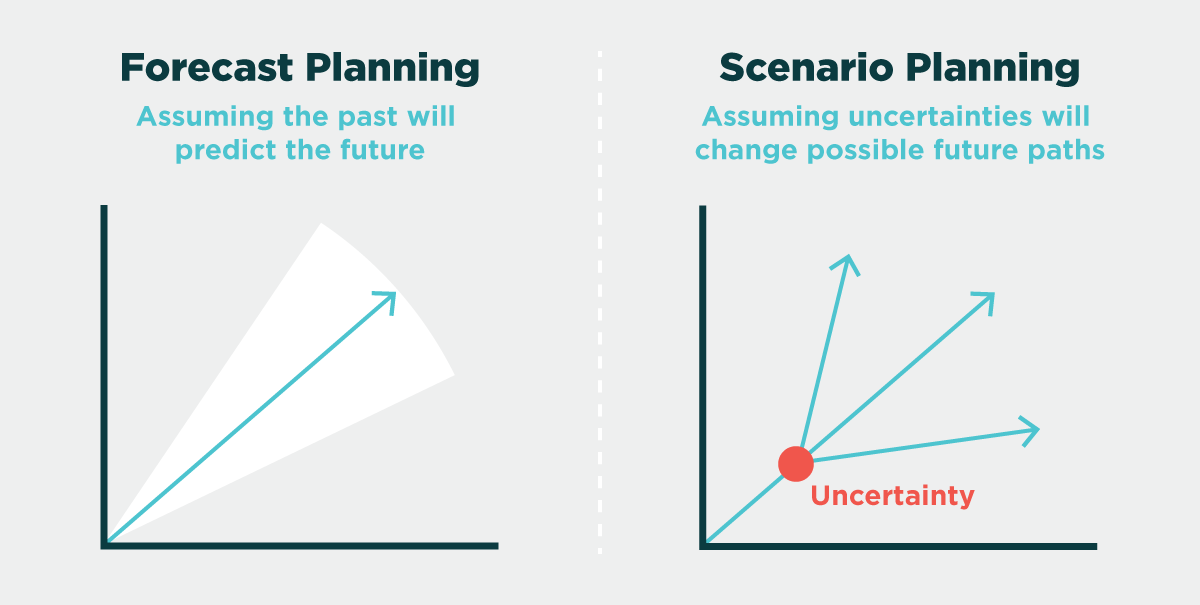
Author: Peiffer Brandt, President and CEO
Recent winter storms, particularly Winter Storm Uri, were devasting, definitely unexpected, and perhaps unpredictable. We call events like this black swans—they seem to appear from nowhere, have major consequences, and then we look back with the benefit of hindsight and rationalize what happened. To those who must solve for those major consequences in the moment, it feels like the pundits make the solutions seem so simple. I know there is a lot more to it than that.
If the last year has taught us anything, it is that we cannot rely on looking back to predict what is ahead of us. Resiliency is a word that local governments and utilities used long before it became part of the COVID-19 vernacular, and financial resiliency planning is where our focus should be if you want to prepare for the unexpected.
Although I cannot do the operational work many public sector leaders are wading through in the aftermath of the storm, I can share my checklist developed after working with hundreds of public sector organizations to get you moving toward a future where black swans are less impactful.
Carefully tracking costs associated with recovering from the storm. Federal aid will be coming, and you want to be first in line to receive it. A well-documented response will greatly simplify your federal aid reimbursements. Our work with those that have been through wildfires and hurricanes underscores this.
Evaluating the level of reserves you carry. Cash reserves are what you have to make it through, and to recover. Although federal aid will likely be coming, it will never be enough, and it won’t be timely. I worked with the Sewerage and Water Board of New Orleans following Hurricane Katrina. Their Executive Director at the time was Marcia St. Martin. She often said that it was the cash reserves that the Board had prior to Katrina that allowed the utility to continue to provide service following the devastation. Her words still resonate with me.
Shift to scenario planning. If you have always used traditional forecast planning, you look back into the recent past and extrapolate from there. There will be a lot of pressure to make sure what happened never happens again. That is forecast planning. But if this last year taught us anything it is that uncertainties will always exist. Scenario planning takes what we know today and envisions multiple futures while allowing organizations to make decisions now that will position them for any one of those scenarios in the future.

Move beyond planning for potential localized impacts. Nearly every local government and utility has a well-crafted emergency operation plan for a localized natural disaster or events that impact their own organization in some significant way. These plans include financial components. Today we must think regionally and nationally too. Uri was a regional event—putting every government agency in competition with each other for the same resources. COVID-19 is a national emergency impacting every local government and utility. These realities need to be considered, and regional approaches may factor into your planning.
Ask for money for resiliency now. Just because the future is hard to predict and you can’t name what the event will be, doesn’t mean you won’t need money to deal with what comes your way. We have lots of evidence that we will come upon events that we didn’t plan for. In an era where local governments and utilities are already operating in a chronically underfunded way, we need to rethink reserve policies.
Advocate for funding at the state and federal level. I don’t have to tell you that local governments are the foundation of our communities and the services you provide are essential to every person that relies on you, but you probably need to tell our state and federal leaders that. The economic impacts of COVID-19 have meant that many city leaders have exhausted their emergency reserves. Natural disasters have made this worse. You need direct aid to keep serving those that rely on you. Our professional associations are working in the trenches for you, but they also need you to tell your stories, and the financial story is one that is often not told.
The significance of the challenges facing our public sector clients is more defined than it has ever been. What hasn’t changed is that the people who lead local governments and utilities are innovators—they are always looking to provide better service for those that rely on them. My thoughts are with those who are doing that right now, in the face of natural disasters and a pandemic. Thank you for your commitment to caring for your community.